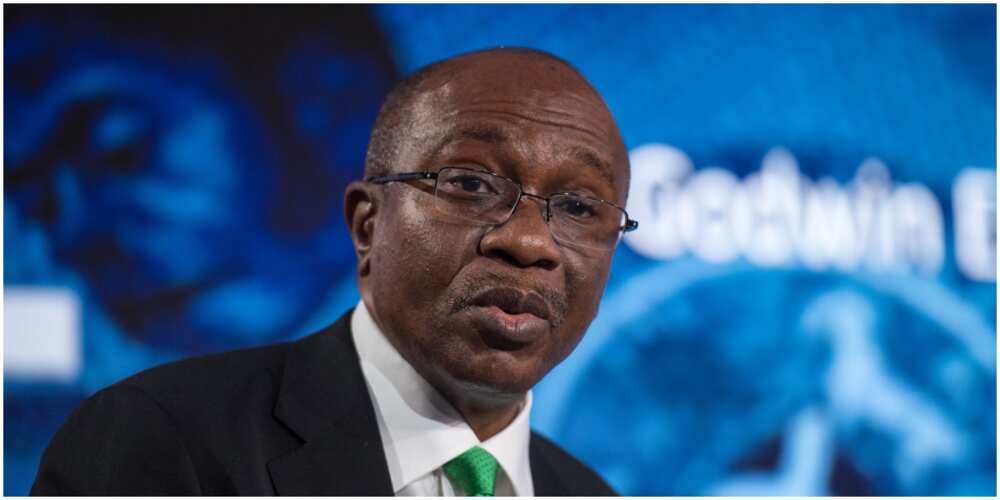CBN's MPC Tells Banks to Reduce Non-performing Loans but Increase Credit Approval
- Monetary policy committee directs banks to prevent customers' bad debt from increasing further as it surpasses the benchmark
- CBN wants banks to stop non-performing loans from rising but told lenders to improve credit approval for businesses
- Loan to deposit ratio is on the increase due to bank's fear of losing their capital to the central bank as punishment
PAY ATTENTION: Click “See First” under the “Following” tab to see Legit.ng News on your Facebook News Feed!
PAY ATTENTION: Join a community of CEOs, founders and decision-makers: subscribe for a free monthly business newsletter Digital Talks and succeed BIG!
The Central Bank of Nigeria (CBN)'s monetary policy committee told deposit money banks to reduce their Non-Performing Loans (NPL) which is above the prudential benchmark set for lenders.
NPLs are debts that turned bad due to the inability of the debtor to repay principal or interest capital after 90 or 180 days of the due date depending on the loan-type and industry of the borrower.
Once the debtor defaults on payment, the loan gets classified as bad debts. According to the committee, the non-performing credit of Nigerian banks is way up at 6.3% as at February 2021, against the 5.0% benchmark which NPLs is supposed to be below.
MPC said regulatory measures should be adopted by the creditors to ensure a decline. This was contained in the circular of the committee:
"Non-Performing Loans (NPL) ratio of 6.3 per cent as at February 2021, On non-performing loans (NPLs), the MPC noted that the ratio remained above the prudential benchmark of 5.0 per cent and urged the Bank to sustain its regulatory measures to bring it below the prudential benchmark."
PAY ATTENTION: Follow us on Instagram - get the most important news directly in your favourite app!
PAY ATTENTION: Legit.ng is on a mission to support vulnerable children of Calabar – join the initiative

Source: Getty Images
Why is non-performing loans rising?
The CBN in 2019 announced a benchmark for loan-to-deposit ratio (LDR) which is meant to force banks to provide credit to various sectors in the economy, especially to SMEs, retail, mortgage and consumer lender.
The apex body directed banks to maintain a minimum 65% credit in line with their total deposit. Any lender that falls short of the ratio will lose part of their capital base to the financial regulator.
In order not to lose money to the central bank, creditors have improved their level of borrowing to the Nigerian economy. According to the circular, credit from the banking system rose to N43.67 trillion in February 2021.
This is a 1.75% increase when compared to the previous month, which recorded N42.92 trillion. The increasing credit in the economy is dragging the non-performing loans up due to a high level of risk exposure amid uncertain market conditions induced by COVID-19 pandemic and government policy.
Despite directing banks to reduce the number of bad debts in the financial sector, the MPC encouraged the lenders to continue improving the provision of credit facilities to businesses within the country.
The monetary and fiscal stimulus have also pushed LDRs high. The committee told the banks not to stop borrowing but to reduce loan default among customers:
"The Committee thus, enjoined the Bank to maintain its current drive to improve access to credit to the private sector, while exploring other initiatives with the fiscal authorities to improve funding to critical sectors of the economy."
Meanwhile, Legit.ng had earlier reported that the ministry of mines and steel want the banks to start collecting gold jewellery as collateral from micro, small and medium companies.
The ministry is already in talks with commercial banks to effect the use of gold jewellery as a requirement for loan application.
Fakoyejo Olalekan is a Business and Financial Journalist with over three years of experience in covering finance and business activities within Nigeria and offshore. Prior to joining Legit.ng, he worked at Nairametrics where he wrote financial and investment analysis articles. Olalekan is a resourceful and result-driven journalist with a track record for conducting extensive research and interviews to produce articles that provide different perspectives to market activities.
Source: Legit.ng



